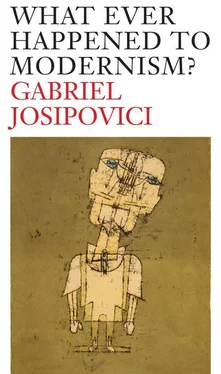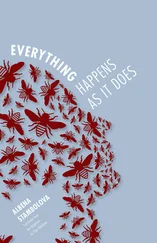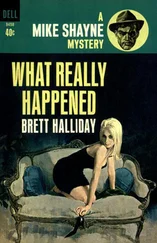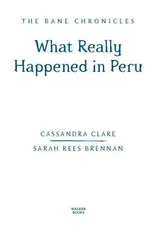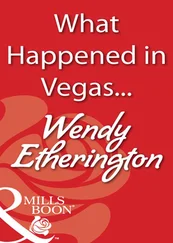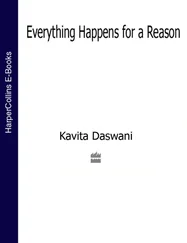page 187 , The late R.B. Kitaj …: First Diasporist Manifesto , Thames and Hudson, London, 1989.
Page numbers in italics refer to figures.
abstract expressionism (i), (ii), (iii)
abstraction (i), (ii)
Bacon on abstract art (i), (ii), (iii)
Duchamp's scepticism (i)
as final destination for art (i)
Friedrich as precursor (i), (ii)
in music (i)
in novel (i)
Picasso's aversion to (i), (ii), (iii), (iv)
action: Greek tragedy as imitation of (i), (ii), (iii), (iv), (v)
actuality and possibility (i), (ii)
Adorno, Theodor (i), (ii), (iii), (iv)
Aeschylus (i)
Oresteia (i), (ii), (iii), (iv)
Prometheus Unbound (i)
Agamemnon (i), (ii), (iii)
American Society of Independent Artists (i)
Amis, Kingsley (i), (ii), (iii)
Amis, Martin (i)
ancient world (i), (ii), (iii)
see also Greek tragedy
anecdotal
in art (i), (ii)
in novel (i), (ii), (iii), (iv)
antipathy to Modernism (i)
anxiety
and individual freedom (i), (ii)
of writers (i), (ii)
Apollinaire, Guillaume (i), (ii)
Appelfeld, Aharon (i)
arbitrariness (i)
in classic novel (i), (ii), (iii), (iv), (v), (vi)
Aristotle (i)
Poetics (i)
art
artistic drive (i), (ii)
Bacon on life and illustration (i), (ii), (iii), (iv), (v), (vi), (vii), (viii), (ix)
and chance (i)
choice in making of (i), (ii), (iii)
creativity and justification for art (i)
critics and views of Modernism (i), (ii), (iii), (iv)
and denial of genre (i), (ii)
Duchamp and readymade (i), (ii)
Duchamp's Large Glass (i)
Dürer's Melencolia I and loss (i)
landscape and break with tradition (i), (ii), (iii), (iv), (v)
Modernism as artistic response (i)
Picasso (i), (ii), (iii)
Renaissance values (i)
see also abstraction
art historians on Modernism (i)
artificiality
art (i)
fiction (i), (ii), (iii), (iv)
Auden, W.H. (i)
Augustine, St (i)
‘aura’ of work of art (i)
authority (i)
and art criticism (i)
and genius (i)
and novel (i), (ii), (iii), (iv)
authors
anxiety and despair (i), (ii), (iii), (iv)
as figures in fiction (i), (ii)
Kierkegaard on conclusions (i)
‘naïve’ authors (i)
as solitary individuals (i), (ii), (iii)
see also novel
Bacon, Francis (artist) (i), (ii), (iii)
on abstract art (i), (ii), (iii)
on life and illustration (i), (ii), (iii), (iv), (v), (vi), (vii), (viii), (ix)
on Rembrandt's Self-Portrait (i), (ii)
Bacon, Sir Francis (statesman and philosopher) (i), (ii)
Bakhtin, Mikhail (i), (ii)
‘Ballad of Sir Patrick Spens, The’ (i)
Balzac, Honoré de (i), (ii)
Barnes, Julian (i)
Nothing to be Frightened of (i)
Barthes, Roland (i), (ii)
on the Citroën DS 19 (i)
Le Degré zéro de l'écriture (i), (ii), (iii), (iv), (v), (vi)
Bataille, Georges (i)
Bandelaire, Charles (i)
Bayley, John (i), (ii)
Beckett, Samuel (i), (ii), (iii), (iv), (v), (vi)
‘Dante and the Lobster’ (i)
Endgame (i)
weariness with tradition (i), (ii), (iii), (iv), (v)
Beethoven, Ludwig van (i), (ii), (iii), (iv)
Bellow, Saul (i)
The Adventures of Augie March (i)
Benini, Roberto (i)
Benjamin, Walter (i), (ii), (iii), (iv), (v)
Berger, John (i), (ii)
Berio, Luciano (i), (ii)
Berlin, Isaiah (i)
Bernhard, Thomas (i), (ii), (iii), (iv), (v), (vi)
Beuys, Joseph (i)
Birtwistle, Harrison (i)
Semper Dowland, Semper Dolens (i)
Blanchot, Maurice (i), (ii), (iii), (iv)
Blumenberg, Hans (i), (ii)
Bois, Yve-Alain (i)
Bonnard, Pierre (i)
Border Ballads (i)
boredom threshold and artistic drive (i)
Borges, Jorge Luis (i), (ii), (iii), (iv), (v)
‘Death and Compass’ (i)
‘The Garden of Forking Paths’ (i)
‘Pierre Menard, Author of Quixote’ (i)
‘Tlön, Uqbar, Orbis Tertius’ (i)
Boulez, Pierre (i), (ii), (iii)
bourgeoisie: Modernism as reaction to (i), (ii), (iii), (iv)
Bowie, Malcolm (i), (ii), (iii), (iv), (v)
Bradbury, Malcolm: Rates of Exchange (i)
Braine, John (i)
Braque, Georges (i), (ii), (iii), (iv)
Brecht, Berthold (i)
Breton, André, Surrealist Manifesto (i)
Breton, Jules, June (i)
Brod, Max (i), (ii)
Browne, Sir Thomas (i)
Cabanne, Pierre (i)
Cage, John (i), (ii)
Carey, John (i)
Carroll, Lewis (i), (ii)
Cecil, Lord David (i), (ii), (iii)
Celan, Paul (i)
Cervantes, Miguel de (i), (ii), (iii), (iv), (v), (vi), (vii)
Don Quixote (i), (ii), (iii), (iv), (v), (vi), (vii), (viii), (ix)
‘Pierre Menard, Author of the Quixote’ (Borges) (i)
Cézanne, Paul (i), (ii), (iii)
Bathers (i), (ii)
critical responses (i)
and landscape (i)
Picasso's study of (i)
Chagall, Marc (i)
chance and art (i)
see also arbitrariness
Chaplin, Charles (i)
Charbonnier, Georges (i)
choice in making of art (i), (ii), (iii)
chorus in Greek tragedy (i)
Clair, René: Entr'acte (i)
Clark, T.J. (i), (ii)
Farewell to an Idea (i), (ii), (iii)
Cocteau, Jean (i)
Oedipus Rex (i), (ii)
Coleridge, Samuel Taylor (i)
Colley, Linda (i)
comedic narratives (i)
commercial justification for art (i)
commercialization of literature (i)
community in pre-Modern world (i), (ii), (iii), (iv), (v)
chorus in Greek tragedy (i)
Compton-Burnett, Ivy (i)
conclusions
and authors (i), (ii), (iii)
lacking in nouveau roman (i)
lacking in story of Modernism (i)
Corbett, Patrick (i), (ii)
Craft, Robert (i), (ii)
creativity and justification for art (i)
Crisis of Modernism (i)
artists in crisis (i), (ii), (iii)
responses and critiques (i)
critical responses (i)
and Crisis of Modernism (i)
English responses (i), (ii), (iii), (iv), (v)
and ‘modern’ novel (i), (ii), (iii)
Tolstoy on difficulty of Mallarmé (i), (ii)
Cubism (i), (ii), (iii), (iv), (v), (vi)
Daiches, David (i)
Dante (i), (ii)
Divine Comedy (i), (ii), (iii), (iv)
de Duve, Thierry (i), (ii), (iii), (iv)
death
and Greek tragedy (i), (ii)
and position of self in world (i), (ii)
Deleuze, Gilles (i)
Descartes, René (i)
despair
and self (i)
and tragedy (i)
of writers (i), (ii), (iii), (iv)
see also melancholy
destiny (Napoleonic) and reality (i)
detail and reality in novel (i)
diasporist imagination and Modernism (i)
Dickens, Charles (i), (ii)
Oliver Twist (i), (ii), (iii)
Pickwick Papers (i), (ii)
‘disenchantment of the world’ (i), (ii)
and art (i)
and emergence of novel (i), (ii)
loss in transition to Modern era (i), (ii)
Doesberg, Theo van (i)
Donne, John (i), (ii)
Dostoevsky, Fyodor
Bakhtin on (i)
Crime and Punishment (i), (ii)
Notes from Underground (i)
and zeitgeist (i)
double vision and perspective of self in world (i)
Douglas, Mary (i)
Dowland, John, Lachrymae (i)
drama see theatre
Duchamp, Marcel (i), (ii), (iii), (iv), (v)
chance and art (i)
on choice in making of art (i), (ii)
De Duve on (i)
Читать дальше
